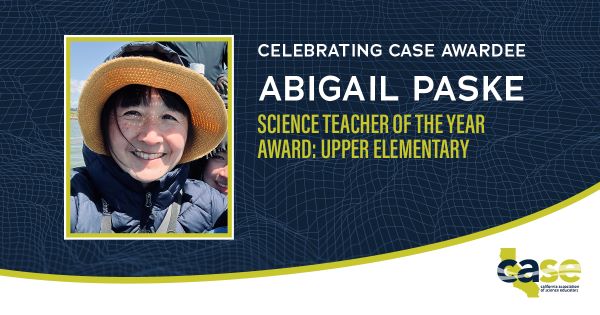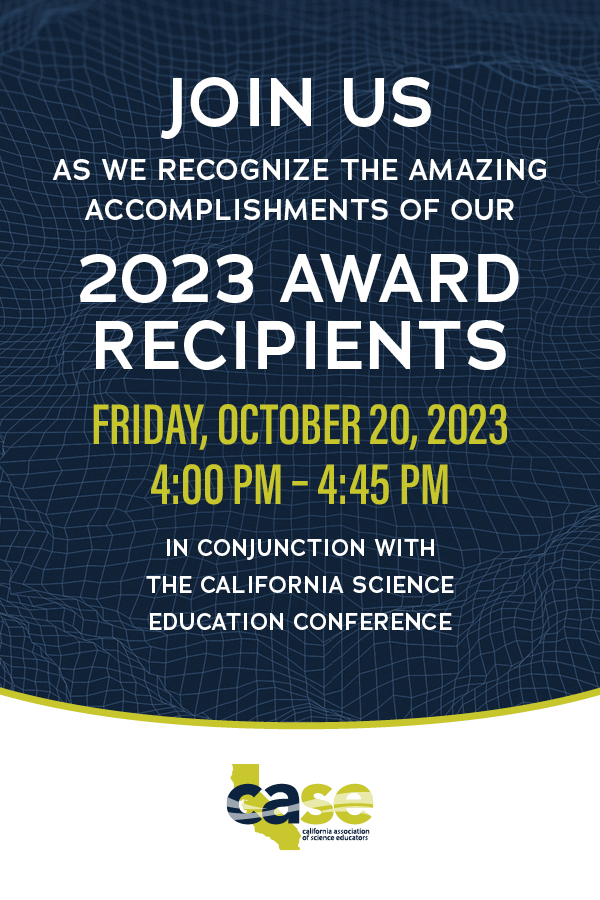
Teacher of the Year (Upper Elementary): Abigail Paske
Meet Abigail Paske
I feel like I'm trying to make my small corner of the world a more equitable, curious, thoughtful, wondrous, place - one science lesson at a time. I'm not special; I'm one of many hard-working teachers who love what they do. So, in short, I'm honored, humbled to receive any recognition for my work.

What made you decide to become a teacher?
I became a teacher because, in addition to having the best toys, science is the subject that's there whether you notice it or not. Science is the basis of all of our lives, so let's dig it deep and appreciate it!
Why are you passionate about science education?
As an Asian woman who majored in physics in college, I was a minority. I stayed with it, against the odds, because of strong mentoring and a lot of encouragement. In a field where men, mainly white men, traditionally dominate, I feel that I can make a difference in the lives of my students by providing a firm, positive foundation in science - showing them that they can be curious, successful, and interested regardless of outward appearance. By showing up for my students each year, I hope to challenge their beliefs, shake up the norm, and show each student that they can shine at science. I have a secret/not-so-secret agenda which is to find the "just right" STEM field for each of my students.
What are some of the most rewarding and challenging aspects of teaching?
One of my favorite things to teach is our unit on circuits. Usually, many of the girls haven't had a chance to noodle around with wires and light bulbs and batteries and start out hesitant. By the end of the unit, they're really invested in making electromagnets and designing creative light switches. One year a student was so inspired, she even had a "Build Your Own Flashlight" slumber party for her birthday. It thrills me to show students they can do hard things.
One of the most challenging aspects of teaching is getting to know the students well enough to tap into their personal passion. I try to choose a couple of students who seem frustrated or disengaged each year, and find out what makes them tick. The many fields of science are so broad that there's something for everyone - if I can just find one tiny subject that fascinates, I try and make it work in class - even if that sometimes leads to an unreasonable number of cat memes.
Describe your teaching philosophy.
I tell my students that the habit of the scientist, especially at the elementary level, that matters the most is curiosity. A regular person might walk by and think "That's a rock. That's a cloud. That fell down," but the scientist stops to ask questions, investigate, experiment, learn and share. The lens of science is an all-encompassing and wonderful way to experience the world.
Quick Links
Exhibit Partner Package
Opening Soon
Join us at the 2025 California Science Education Conference, the premier event for science educators across California! This gathering is your chance to showcase your products, engage with educators, and maximize your impact through our exclusive Partner Program.


